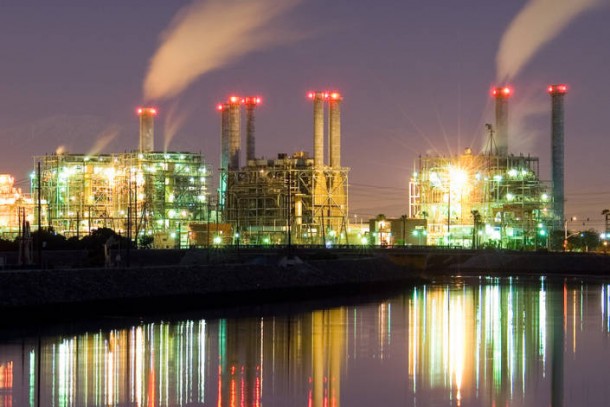WASHINGTON D.C., U.S.A. This Monday, the Obama administration proposed a new Environmental Protection Agency regulation to reduce 30% of power plant carbon emissions by 2030. Spanning 645 pages, this controversial plan is crucial to Obama’s climate change agenda as the shift from coal would reduce the reliance on a source of energy that emits greenhouse gasses. Another key aspect to this new rule is the international impact it will have. The US will pressure countries like China to take on cleaner energy policies.
Discussing this issue in his weekly address, Obama stated: “I refuse to condemn our children to a planet that’s beyond fixing. The shift to a cleaner energy economy won’t happen overnight, and it will require tough choices along the way. But a low-carbon, clean energy economy can be an engine of growth for decades to come. America will build that engine. America will build the future.”
While America is an incredibly influential global leader, the belief that it must continue augmenting policies and regulations that prove it is ‘number one’ come with a risk—alienating other nations. As a result of the US government’s role as a global hegemon there is an obligation to lead other nations to cleaner environmental policies. In responding to climate issues, Obama has demonstrated the priority of cleaner energy, a notable feat as environmental reforms have all too often taken the backseat throughout the terms of various American presidents.
The US is enacting policies that it hopes other nations will implement themselves. However, to believe countries like China and India will wholeheartedly align themselves in agreement is simply not realistic. One of the crucial consequences of America and other nations building up strength and power over history was the incredible amount of pollution and environmental damage that industrialization caused. Throughout the early course of history, as industrial development flourished in America, there were no regulations or policies—or even discussions—about what impact such industrialization would have on the environment. Fast-forward to today when countries like China and India, attempting to become fully industrialized nations, refer to America as a model. These countries argue for a chance to develop, just as America did. Adapting environmental policies similar to the one Obama just proposed would considerably limit any possible growth.
When the US enacts environmental regulations and expects other countries to follow suit, disappointment will be sure to follow. With nations like China and India trying to further develop and industrialize in the same manner of the US, environmental discrepancies will be expected. However, this gap in policies should not prevent the US from continuing its reforms for cleaner energy. Its global leadership means that environmental concern will be noted by other nations and perhaps will even influence their own political agendas.
– Nora TurriagoWASHINGTON D.C., U.S.A. This Monday, the Obama administration proposed a new Environmental Protection Agency regulation to reduce 30% of power plant carbon emissions by 2030. Spanning 645 pages, this controversial plan is crucial to Obama’s climate change agenda as the shift from coal would reduce the reliance on a source of energy that emits greenhouse gasses. Another key aspect to this new rule is the international impact it will have. The US will pressure countries like China to take on cleaner energy policies.
Discussing this issue in his weekly address, Obama stated: “I refuse to condemn our children to a planet that’s beyond fixing. The shift to a cleaner energy economy won’t happen overnight, and it will require tough choices along the way. But a low-carbon, clean energy economy can be an engine of growth for decades to come. America will build that engine. America will build the future.”
While America is an incredibly influential global leader, the belief that it must continue augmenting policies and regulations that prove it is ‘number one’ comes with a risk—alienating other nations. As a result of the US government’s role as a global hegemon there is an obligation to lead other nations to cleaner environmental policies. In responding to climate issues, Obama has demonstrated the priority of cleaner energy, a notable feat as environmental reforms have all too often taken the backseat throughout the terms of various American presidents.
The US is enacting policies that it hopes other nations will implement themselves. However, to believe countries like China and India will wholeheartedly align themselves in agreement is simply not realistic. One of the crucial consequences of America and other nations building up strength and power over history was the incredible amount of pollution and environmental damage that industrialization caused. Throughout the early course of history, as industrial development flourished in America, there were no regulations or policies—or even discussions—about what impact such industrialization would have on the environment. Fast-forward to today when countries like China and India, attempting to become fully industrialized nations, refer to America as a model. These countries argue for a chance to develop, just as America did. Adapting environmental policies similar to the one Obama just proposed would considerably limit any possible growth.
When the US enacts environmental regulations and expects other countries to follow suit, disappointment will be sure to follow. With nations like China and India trying to further develop and industrialize in the same manner of the US, environmental discrepancies will be expected. However, this gap in policies should not prevent the US from continuing its reforms for cleaner energy. Its global leadership means that environmental concern will be noted by other nations and perhaps will even influence their own political agendas.
— Nora Turriago

